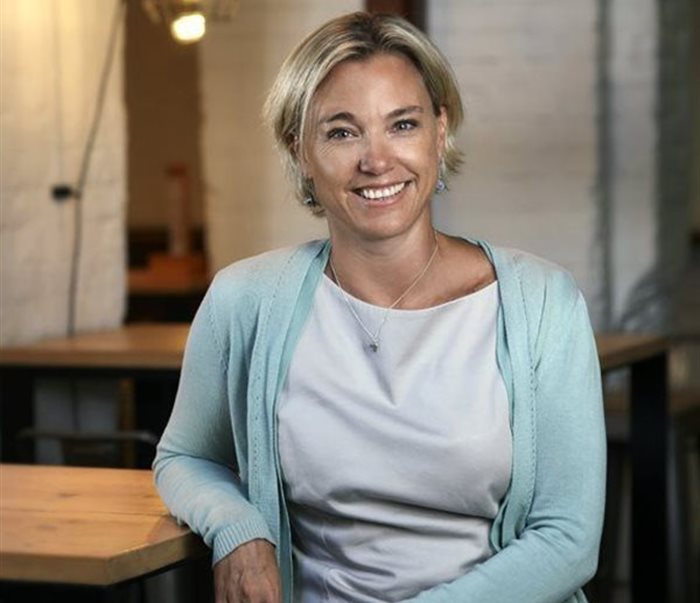#BizTrends2022: A year of regrowth and rebuilding

As we start the new year, new entrepreneurship trends shaped by the pandemic continue to emerge - from new technologies and innovations to ever-changing customer demands and societal shifts.
Bridgit Evans, director at the SAB Foundation, believes that while the pandemic may have forced many businesses to close and provoked an unprecedented downturn in the global economy, it also opened up a whole lot of new opportunities, in particular, doing business differently.
I chatted to Evans about the SAB Foundation and how it supports local entrepreneurs as well as entrepreneurship and business funding trends for the year ahead and beyond.
Briefly tell us about the SAB Foundation.
The SAB Foundation is a component of the South African Breweries’ Black Economic Empowerment ownership scheme that was established in 2010. The foundation focuses 100% on different kinds of entrepreneurship and our key beneficiaries are women and youth in rural areas as well as persons living with disabilities.
We have three broad programmatic areas. The first one is economic empowerment through farming where we look at big, collaborative farming initiatives in disadvantaged areas. The second area we focus on is general entrepreneurship, where we try to find entrepreneurs from across the country.
In the first phase, we try to help people start businesses. In the second phase, we have an 18-month long business development programme where we take in between 60 and 70 entrepreneurs a year and we put them through this programme of developing their business skills. We then assign them a mentor and also give them R200,000 grant funding each to help transition those businesses and help them become more commercially viable.
We look at businesses outside major metropolitan areas and test them from seed to scale. So, if businesses perform very well in that programme and we can see that there is an opportunity to create a lot of jobs, we then will look at funding them again. Our relationships with entrepreneurs never end.
The last area that we focus on is social innovation. For us, social innovation means business solutions to social problems. Our main programme is the Social Innovation and Disability Empowerment Awards, held annually. We are looking for businesses that are trying to solve South Africa's biggest social challenges and we believe that if we help those businesses excel, they can even become the new way that the country deals with an old problem.
We look at innovations in education, health, food and affordable housing. The awards prizes start at R200,000 and go up to R1.3m.
How has your work at the SAB Foundation been impacted by the Covid-19 pandemic?
It hasn’t impacted us as a foundation, but it has impacted our beneficiaries. Entrepreneurs have had some very difficult times and many of them have really struggled.
Business right across the country has been very, very tough in the last few years. We made R30m in Covid-19 relief funding available to make sure that the businesses we had already invested in didn't close down as a result of the pandemic.
Looking into the new year, what entrepreneurship trends are we likely to see?
I think there have been a lot of trends that have developed around Covid-19. While it's been very tough on many businesses, it has also opened up a whole lot of new opportunities, in particular, doing business differently.
We’ve already seen that through our Social and Innovation Awards. There is quite a big emphasis now on delivery. Buying and selling things online has become a huge industry since the beginning of Covid-19 and that requires a whole new sector of delivery. The roads are just filling up with motorbike drivers and delivery vehicles. So yes, we’ve seen that industry explode over the last few years.
We've seen some interesting trends develop, for example, during Covid-19, we saw a lot of companies close, particularly in the hospitality sector, but we also had brand new ones open. The other interesting trend that Covid-19 has brought is the ability to work in a different city or town to where your office is located. What we have already seen and what I think we are still going to see, is opportunities for entrepreneurs.
So, in 2022 I'm hoping it's going to be a time of rebuilding and growth, and it's not going to be easy for entrepreneurs as they’ve lost so much. Many of them are hanging on by a thread and I really do hope that as the world eases and people feel at ease around Covid-19 and hopefully vaccines start to become more widespread, people will be less fearful around spending.
With regards to business funding, what is the outlook for 2022?
It is difficult to say. I think South Africa has an environment where there is an enterprise development space where companies and government are putting a lot of money into small businesses, and then you’ve got the banks and venture capital. Unfortunately, there is a big gap between these two.
New businesses really struggle to get growth funding from traditional sources of finance, but I think funding entrepreneurs is not going to go away. It is only going to grow because the government and everyone recognises that it is the only thing that's going to really create jobs. I don't think it's going to be an easy funding environment because everyone’s spending has been tough.
What would you like to see changed in the current local entrepreneurship landscape?
Well, I think there is a big missing middle when it comes to funding. Many entrepreneurs have no problem accessing, as I said, enterprise development funding as part of the corporate responsibility and Black Economic Empowerment. But when it comes to them accessing funding from big companies, they are really struggling. The banks are not playing the role they are supposed to play in terms of developing small businesses. I would like to see that gap start to close.
As the SAB Foundation, we are now trying to access other finance ourselves so that we can lend into that market because we understand that the risk is not nearly as great as people think it is. We feel that if we could have great relationships with these entrepreneurs, this would also mitigate the risk.
We are now going to access, hopefully, other finance so that we can lend big amounts of money to small businesses.
What are your plans as the SAB Foundation for the year ahead?
One of our biggest plans is to lend bigger amounts to entrepreneurs and run specific innovation challenges around particular issues. In 2021, for the first time, we ran an innovation challenge around reducing harmful consumption of alcohol and this year, we are going to run it again.
Our long-term dream is to take the model that we've developed successfully over the last 11 years, particularly in the social innovation space, and see if we can raise the funding to offer that opportunity in other African countries.
What advice will you give to an upcoming entrepreneur?
My advice to young entrepreneurs is to really try and access as much business support as they can. One of the reasons why I admire entrepreneurs so much is because they have so much courage and confidence that they believe that they can sometimes do what other people think is impossible. That's what makes them so impressive.
On the other hand, they often don't see the need for mentorship when they need it. To any young entrepreneur, find other successful business people in your area and ask if they could mentor you. Also, take advantage of the many opportunities South Africa has to offer for start-up entrepreneurs.












